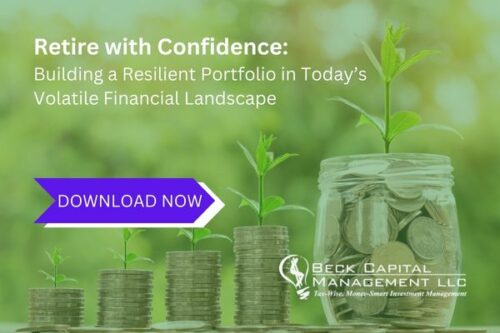Given today’s medical advances and new technologies, there’s a good possibility that your retirement could last 30 years or more. So the first question is, will your retirement savings sustain your lifestyle for three decades?
If you are nearing retirement but are still in the workforce, you may be second-guessing your retirement date or current retirement savings amount. Then, throw in planning for your retirement years and the management of your assets, and it can feel like you’re on a high wire, trying to balance your priorities and make the right decisions. The next question is, do you have the time, inclination, and expertise to manage your retirement assets?
Based on your answers to these questions, now might be the perfect time to consider selecting an experienced financial professional to help you. However, choosing the right financial advisor for you in Austin, TX, may be more complex than you might think. We believe several factors should go into your selection process, which we’ll discuss in this blog.
Read our Comprehensive Guide to Wealth Management in Austin
What is the Fiduciary Standard?
We feel that your selection process should limit your choices to financial fiduciaries. Why? Because fiduciary financial advisors are legally bound to act in your best interests, offer impartial advice, and get paid directly by you. Your alternative is an advisor who is not held to this standard and is paid by third parties (mutual funds, insurance companies) to sell you their products. It is important to understand the differences.
This can also mean the financial fiduciaries are required to put your needs to pursue goals ahead of their needs to produce income from your assets. W think an advisor should provide advice and services that match your goals, risk tolerance, and current financial circumstances while being paid a fee for their knowledge, advice, time, and services.
The BCM Edge: We learned early on that working for Wall Street firms meant our goals were focused on meeting sales targets and generating revenues that met the shareholders’ expectations of these publicly traded companies. We formed Beck Capital Management to provide an independent alternative that puts our client’s financial interests first. We saw the need for a better approach that included a fiduciary standard when we began providing retirement planning in Austin.
Emotion vs. Objectivity: Make a Disciplined Decision
Making an emotion-based decision about who you will select as your wealth manager is risky. Why? Emotional choices can lead to selecting advisors with the best personalities or sales skills. What you want is a financial professional you can trust.
Personality, while important, should not be the main criterion for your selection. An advisor’s personality and sales skills make it easy to be charmed. They know what you want to hear and have delivered that information hundreds or thousands of times. But what matters is their financial knowledge based on degrees, experience, and certifications. Trust is equally important. How good is financial advice you can’t trust? This is why selecting a financial advisor for the right reasons is so important.
Be extra cautious when advisors use references to help them convince you to buy what they are selling. On the one hand, references may be carefully selected and coached to make the right comments. On the other hand, financial advisors will only refer you to references that make positive comments. This is another sales tactic used to convince you to buy what they are selling.
One additional warning. The investment experience of references does not represent a track record. Not only are references carefully selected, but future results may not be the same as past results.
Selecting the right investment advisor for you, in Austin, is about making the right decision for the right reasons. You need to set aside your intuition and concentrate on what matters: Does this advisor have the knowledge and services you need to help achieve your financial goals? After completing your objective due diligence, all things being equal, you can select the advisor you would be most comfortable working with.
Learn more about our investment management process from our founder, Frank Beck.
Questions to Ask a Financial Advisor
When you’re ready to begin your interview process with prospective advisors, asking objective, fact-based questions will help you make an educated decision.
Following is an important list of questions we recommend asking prospective advisors:
1. What are your qualifications and experience?
Understanding a financial advisor’s qualifications and experience is crucial for measuring their knowledge and ability to manage complex financial situations. This includes their educational background, certifications, and years in the industry.
2. Are you a fiduciary, and do you always abide by fiduciary standards?
Knowing whether an advisor is a fiduciary is important because fiduciaries are legally obligated to act in your best interests, reducing conflicts of interest and providing trustworthy advice. Advisors are not fiduciaries when they sell investment products for commission.
3. How do you get paid?
Understanding how an advisor is compensated helps in assessing potential conflicts of interest. Advisors might be paid with fees, commissions, or a combination of the two, which can influence their investment recommendations.
4. What is your fee structure?
Clarifying all of the applicable fees can help you understand the total cost of the advisory services, including any additional layers of fees or charges, thereby ensuring transparency in the advisor-client relationship.
5. Do you provide the services I am seeking?
Different advisors offer a variety of services. Knowing the scope of services (like investment management, estate planning, and tax advice) helps determine if they match your financial needs and goals.
6. Are you currently working with investors like me?
Some financial advisors will work with anyone who will produce the income they seek. Other financial advisors are more specialized. For example, they work with affluent investors, retirees, and business owners.
7. How would you describe your investment philosophy, active or passive?
An advisor’s investment philosophy should match your need for performance and tolerance for risk. This includes their strategies for investing during volatile market conditions. Diversification can be an important topic because it impacts exposure to financial risk.
8. Do you have any disclosures on your compliance record?
Checking for past legal or disciplinary actions against the advisor provides insight into their professional integrity and reputation. This includes regulatory complaints, bankruptcies, foreclosures, and lawsuits.
9. What is your approach to client accessibility and communications?
Understanding how often and through which means the advisor communicates with clients ensures that their approach aligns with your preferences for regular updates and discussions.
10. How many clients do you currently work with, and what are their average assets?
Again, knowing more about the advisor’s current clientele helps you determine if the advisor is experienced working with people like you. Understanding their client load can help you assess the level of personalized attention you can expect.
Beck Capital Management: Austin Investment Advisors
We’re more than just a wealth management firm that invests your assets in stocks and bonds. At the core of our approach is understanding you: what matters most to you, your concerns, your current situation, and any immediate financial needs. This deep understanding is the foundation of our investment recommendation.
Our strategy involves what we like to call a “30,000-foot view.” This means we look broadly at current economic data and determine how the conditions will impact the success of potential investments. Then, we look at longer-term trends to identify potential investment opportunities and risks that should be avoided.
By keeping an eye on the bigger picture, we can position our clients for the inevitable ups and downs of the securities markets.
Ready to learn more about our financial plan and proactive investment services? Let’s connect for an introductory call.


